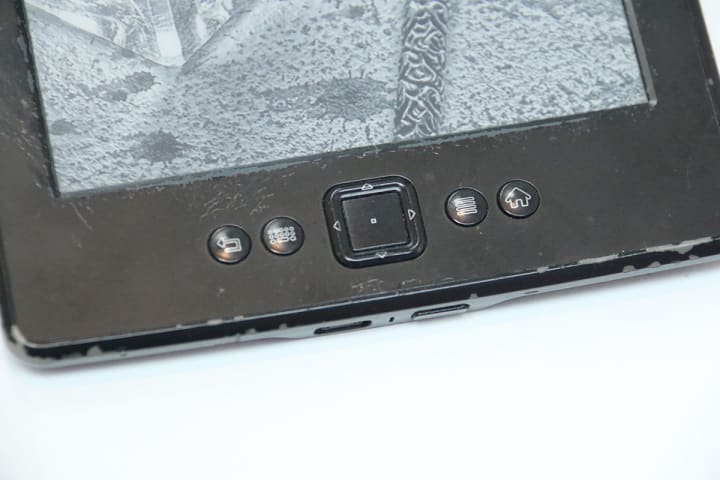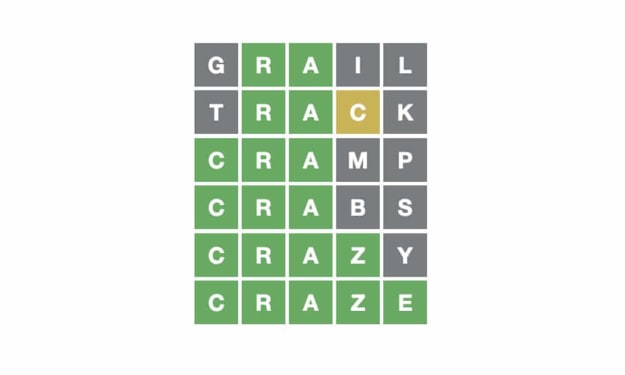The Amazon Kindle is Perfect
Some thoughts on a flawless piece of tech.

A week ago, I had to replace my wallet.
It was a bittersweet moment for me, because I'd had that wallet for nearly twenty years. I bought it in Italy, in 2004, on the first ever trip I took overseas with my now-wife. I can't even remember what it cost.
It was a black leather billfold bought in Lucca, from a shop I can't remember, and for nearly two decades it went everywhere with me. It conformed to the shape of my left thigh, the leather turning a burnished, shiny grey from years in my pocket.
At first, it was just a wallet. Nice, but unexciting. Except, over time, it became a facet of my life I couldn't imagine living without. Not because it was particularly clever or useful—again, just a wallet—but because of how constant it was. It bent, but never broke. It developed rough patches and a few loose threads, but never stopped functioning. It got bumped and knocked and jostled...but it never gave up the ghost.
I really hoped it was going to make it to twenty years. Then I did a stupid thing. I took it on a trip to Panama, and in the hot, wet climate, the leather finally quit. The cracks turned into damp, patchy craters, and I knew: it was done. I felt vaguely stupid and heartbroken, like I'd run over a dear friend's foot with my car and sent him to the emergency room.
The new wallet is chocolate brown, made in Norway. It is stiff and inflexible and...well, new. I'm not mad about owning it—it's a perfectly good wallet. It will probably last a hell of a lot longer than any of the ultra-slim, credit-card-sized ones you see on Instagram by the dozen.
But I miss the old one. Call me sentimental, but I can't bear to throw it away. It'll probably live in my damn closet until the end of time.
There's an obvious point about craftsmanship here, and that it pays to invest in quality. Yadda yadda. I'm certainly not about to embark on a diatribe about how things were better in the old days. Trust me: there have always been things that are made well, and things that are made badly, and that's as much true now as it was in 2004, or 1904.
What I'm interested in is what I think is the key behind what we call good craftsmanship, and it's this: simplicity. And to prove this, I'm going to turn to an unexpected source: my Amazon Kindle.

I realise it's not very PC to give Amazon props. Especially not when Jeff Bezos really is doubling down in the Dr Evil Impersonator stakes, and when he runs a company that treats human workers like cattle. But it would be wrong to say that Amazon and Bezos have done nothing good in the time they've been around, and one of those good things is the Kindle I have next to me on my desk as I write this.
In the movie Inception, characters enter dreams to steal (or sometimes plant) ideas and secrets. Each character has a totem—an object they are uniquely and intimately familiar with. They know its weight and dimensions and shape, and if any of those are off, then they are still in the dream. The main character, Cobb, has a spinning top. Other characters have totems like a die, a chess piece, a poker chip.
If I were to ever incept, my totem would be my Kindle. I would probably have trouble identifying the back of my hand, if it had somehow committed murder and found itself in a police line-up. I don't spend ages staring at the back of my hand, but I do spend ages holding and staring at my Kindle. I'd know it with a single glance at twenty paces.
It is a perfect piece of technology. I mean that. There is not a single thing I would change about it. It does a few very simple tasks: retrieve books from the Amazon store, or a discrete email address. Display them, using its e-ink screen. Turn pages. Allow me to highlight passages and look up definitions. It can even surf the web, albeit in a clunky and annoying manner that is deliberately included as an experimental feature, for interest's sake; it's quite literally in a menu option called Experimental.
It has no backlight. It is thin enough to stick into a jacket pocket, or even the pocket of my jeans. I have never come close to filling up its internal memory, and I read constantly. It is always with me—while I love physical books, there's just no reason to take them on the bus, or the plane, or to the doc's waiting room. My Kindle and I have been to twenty countries together, more, and it has ensured that I have never once been bored.
It has taken a beating. Parts of the e-ink display have glitched, speckling the screen with black dots. The page-turn buttons are worn down, the metal frame showing through the plastic. The exterior is dinged and scratched and rubbed down in a dozen places. But these imperfections and wear marks have made this Kindle uniquely mine. It is, as far as I am concerned, utterly irreplaceable.
Which is a problem. Because as of April this year, it's ten years old.

Think about this for a second. When you have ever heard of a piece of digital technology lasting ten years? Most phones and laptops and consoles and even appliances like microwaves are designed to conk out in less than half that, so you buy the newest model. My OnePlus phone, bought just under three years ago, is a mess. Its battery is shot, its screen susceptible to glitches and freezes, its camera app failing. I don't mean to be a grumpy old man here, I truly don't, but I really do resent having to pay $700 or more for a new phone every three years. Like some kind of fucking tech tax.
But the Kindle? This device designed by a supposedly evil corporation whose bosses want nothing more than to hang me upside down and shake until my pockets are empty?
Still trucking.
Now look: I understand the Faustian bargain I've signed with this device, the bargain to only buy ebooks from Amazon's store. To which my response is: well, so what? How is the Amazon Kindle store any worse than Kobo? Or Apple Books? While I certainly think that Amazon can be utterly heinous, that doesn't stop them doing things that noticeably improve my life, and one of those things is their ebook store.
And once again: consider the strangeness of this Kindle lasting a decade. It has been bashed around and dropped and spritzed with rain. It has gone through a couple of hard resets. It has survived the Balsamic Vinegar Incident of 2017. And yet, it's still here. By making something perfect, Amazon inadvertently made it so I'd never have to shell out for a new one. I don't know whether to laugh at them, or thank them.
This is way, way more impressive than a wallet, which has no circuitry and no moving parts. Ten years, for a piece of tech? That's unheard of.
Which is why I keep returning to that concept of simplicity. It goes hand in hand with craftsmanship. Yes, it is possible to make something complicated with a high degree of skill and craft—just look at watches. But an object built with craftsmanship should last, and something is more likely to last if it is simple. Would my Kindle have stuck around this long if it had a backlight? Or could display social media? Or let me surf the internet outside of a whimsical and cheerfully haphazard Experimental menu?
It's possible my 2012 Kindle model is the best of the lot. Maybe future releases had problems and weren't quite as dependable. I don't know. I think I shall find out sooner than I would like; already, my Kindle's battery is quietly gasping its last, getting less powerful with each charge, and it seems it takes longer and longer to check for new items in my library.
When it goes—assuming I'm not stupid enough to whip it out in a hot, wet climate, as I did with my wallet—I'm going to be heartbroken. It really will be like losing a friend. I certainly won't throw it away; I have a notion in me to frame it and hang it on the wall. Why not? When something is perfect, it should be honoured.
Most technology isn't built to last. Sometimes it's by design, other times it's because the people building it cut corners and use cheap components. But sometimes, very rarely, technology is built by craftspeople. The leather worker who stitched my wallet and the factory worker who assembled my Kindle have more in common than you'd think.
This article comes directly from my weekly newsletter, Sh*t Just Got Interesting. Want to read stories like it a week before anyone else? Sign up here. And you get a free audiobook too, which is nice.
About the Creator
Jackson Ford
Author (he/him). I write The Frost Files. Sometimes Rob Boffard. Always unfuckwittable. Major potty mouth. A SH*TLOAD OF CRAZY POWERS out now!






Comments
There are no comments for this story
Be the first to respond and start the conversation.